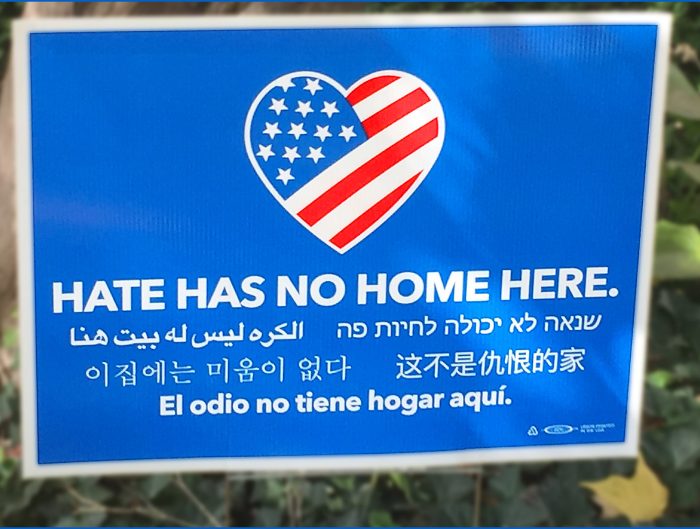As my thinking over the past seven years of running a nonprofit social enterprise has evolved, I have come to realize that the only way to effect social change at scale is to partner with the public sector, by which I mean government. The reason is simple and clear: I could work 80 hours per week for ten years and still have less impact than a change in public policy such as an increase in the Earned Income Tax Credit or the minimum wage, job training programs, or any number of other things that federal, state, or local governments can make happen. Of course, these changes never take place in a vacuum, but are instead driven by pressure from, and collaboration with, the social sector, which I define as nonprofits and for profit social enterprises (companies that seek to achieve social impact and a profit).
Unfortunately, the election of a bigot to President of the United States makes it quite unlikely that the government will be a partner in the fight for social justice; no longer can we assume that those in power will work to protect the environment or the rights of gays and Muslims and immigrants, or uplift the poor, or tackle racism in all its forms. As a result, the work of the social sector is more important than ever; indeed, we may now be the only bulwark against tyranny and injustice.
As a case-in-point, immediately after The Bigot won (I refuse to name him), the Executive Director of the American Civil Liberties Union wrote a poignant letter in opposition to that which The Bigot proposed as a candidate: “If you do not reverse course and instead endeavor to make these [unconstitutional] campaign promises a reality, you will have to contend with the full firepower of the ACLU at every step. Our staff of litigators and activists in every state…are ready to fight against any encroachment on our cherished freedoms and rights.” The ACLU has raised millions of dollars since the election.
Another example: it is now exceedingly unlikely that there will be action at the federal level to reign in the practices of payday and other predatory lenders, who charge interest rates in excess of 200% and rake in huge profits off the backs of the poor. Whereas Capital Good Fund’s alternative to these loans would’ve still been critical had these changes taken place–the need for access to credit would not have gone away, and we would’ve been perfectly positioned to meet that need–we are now left to compete with the bad guys on a level playing field. Unfortunately, the payday lenders are multi-billion-dollar businesses with armies of lobbyists and massive networks of brick-and-mortar branches in every low-income community. Instead of operating in an environment where payday loans as currently structured do not exist, we must try to put them out of business with a fraction of the resources.
So what happens now? It is imperative that people and companies of goodwill contribute their money and time to the social sector. We need your donations, your ideas, and your investments so that we can fight back–not only against predatory lenders but also against governmental policies aimed at making it easier for them to take advantage of vulnerable populations. The ACLU needs you. Greenpeace needs you. The Southern Poverty Law Center needs you. Capital Good Fund needs you. Countless high-quality, high-performing nonprofits and social enterprises need you today, for not only is our work more important and needed than it has been in the past, it also far more difficult: when the power structure opposes those of us who fight for right, only people power–the power of the masses–can topple the infrastructure of injustice, indifference, and hatred.
You can donate to, or invest in, Capital Good Fund at this link. And to see a list of some of my favorite nonprofits, click here.
Some of my other posts on the election:
We Cannot Afford To Make This the New Normal
A Call to All Rational People to Stop Trump




Leave A Reply